‘I Want To Be Able To Change Things at Scale’
In his work as an educator and an advocate for social justice, Dean’s Medal Award Winner Jae Williams harnesses the power of story
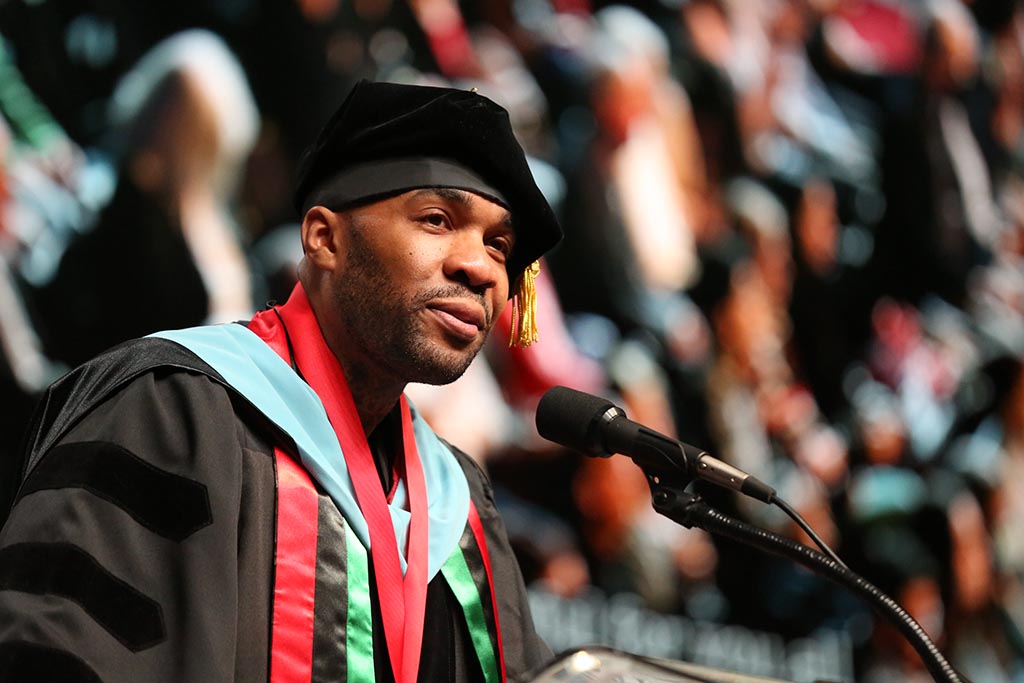
According to Jae Williams (EdD, ’22), it was music that taught him how to tell stories—and stories that taught him how to teach. From Marvin Gaye to Jay-Z, the educator, podcaster, and social justice advocate says, the narratives of suffering and hope that emerged in the music he loved got into his bones. Now, he says, the storytelling instincts he first encountered while listening to those songs form the foundation of his pedagogy and his activism.
“Stories are what make us human,” says Williams, who this year was awarded the prestigious Dean’s Medal for Outstanding Doctoral Work. “In my classes, I try to connect any complex concept to a practical story of how people engage. It’s very difficult for us to remember things that are not connected to story.”
Williams has taught digital storytelling at Berklee College of Music and at Emerson College (both in Boston), worked as a video production instructor at institutions including the Cambridge Center for the Arts, and served as a film and creative-writing mentor at Boston’s Institute of Contemporary Art.
Recently, he began two new projects that combine his passion for storytelling and teaching with his pursuit of equity and inclusion as an advocate for social justice.
In June, he launched a podcast, “Dr. Jae’s Office Hours,” in which he invites experts in diverse fields to discuss their work, an approach that has yielded an eclectic range of topics reflecting the unusual breadth of his own interests and experience. Recent episode titles include “Be UNAFRAID to Ruffle Feathers” with Dr. Sylvia Spears, vice president for administration and innovation and distinguished professor of educational equity and social justice at College Unbound; “How to Balance Professionalism and Authenticity,” featuring advice from author and educator Dr. Marcus Broadhead; and “The Process of a Creative Producer,” with Nerissa Williams Scott, creative producer and CEO of That Child Got Talent Entertainment.
“Dr. Jae’s Office Hours is a podcast highlighting the work and stories of this generation’s creative thinkers, leaders, and dreamers,” Williams says. “And it’s a personal and professional-development podcast for college students of color—because I felt like it’s almost impossible to be what you can’t see. And I’m a product of that. I’m a product of being able to see all the different things that I wanted to explore, but not seeing anybody that looked like me doing them.”
The Creative Café Collective
Williams is also the originator of the Creative Café Collective, a media production company that creates educational content for higher education and students of color. The goal of the Collective, Williams says, is to make higher education a more welcoming space for students of all backgrounds—but especially those who have been traditionally underrepresented.
“The Creative Café Collective is a student retention, belonging, and inclusion program for students of color,” Williams says. “It’s open to all students, but it centers students of color at these predominantly white institutions to give them an opportunity to feel special, and to feel like once they graduate, they have a network of people that actually care and actually want to help them succeed and thrive in their career paths.”
Williams’ own career has reflected the range of his talents, with an emphasis on finding frames and narratives to express individual, community, and institutional stories in compelling ways.
He served as senior communications coordinator at Perkins School for the Blind in Watertown, Mass., as associate director of content strategy at Emerson College, and as director of special projects at Emerson’s Social Justice Center. He also serves on the boards of multiple nonprofits, and he has won awards that include Emerson’s Young Alumni Achievement Award and three Independent Music Video Director of the Month awards from MTV.
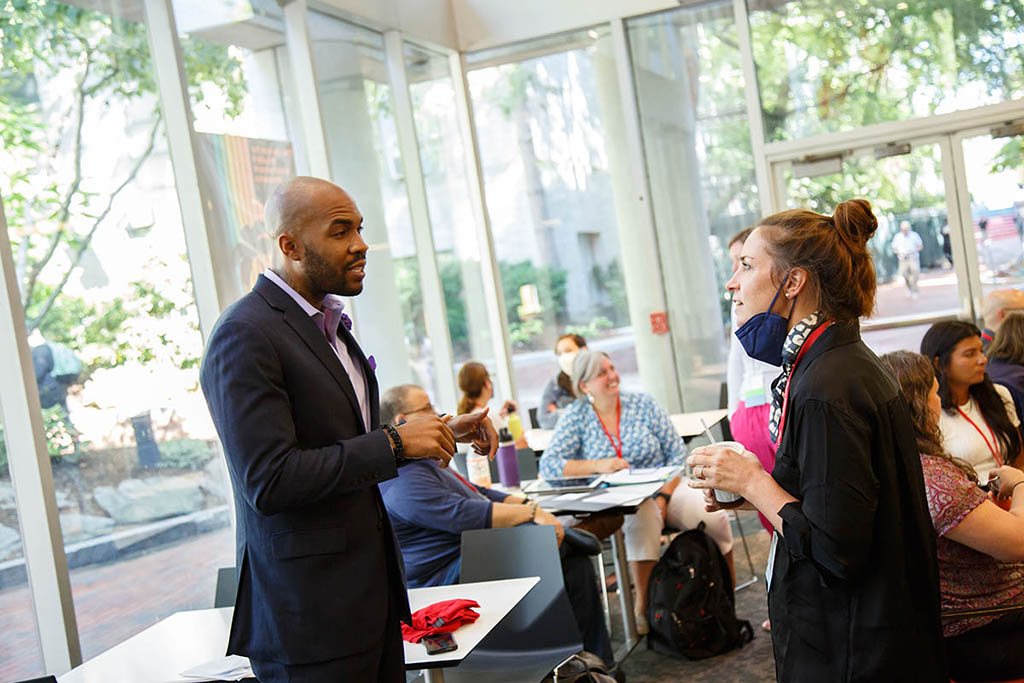
Educational Inspiration
Williams traces his interest in education to a classroom at the Perkins School, where in the summer of 2013 he signed on to help blind students learn to create and direct films. When parents came to see the final presentations, Williams says, watching them and his students shed tears of pride and accomplishment was an indescribable feeling.
“They were literally crying, showing their parents,” Williams says. “And the parents were emotional. And we just had so much fun! That was the first time that I realized teaching is what I love to do. I’ve gone on to teach in a lot of different capacities, but it was in that classroom, teaching those students, with those abilities, the power of storytelling—but more importantly, the power to witness someone discovering themselves, or something new. To me, that is what drives my passion for education. Those students changed my life.”
Stirred by his new-found passion for education, Williams decided that if he wanted to have a significant impact, he would need to deepen his understanding both of his topic and of the world of academia.
“I want to be able to change things at scale,” Williams says. “Not just in a micro-moment in the conference room, or in the break room, or in the hallway, or in the elevator. And the only way I can do this at scale is if I have the language. And so if I can get the language of how [scholars] speak, and blend that with how I speak, then—then—I can make an impact in the way that I believe I was gifted to make.”
Opening doors to those kinds of breakthroughs for others has become an essential part of Williams’ work. His doctoral thesis, America’s Empathy Deficit: Our Bloody Heirloom and the Invisible Backpack, explores the college experience of Black male visual performing-arts students at a pseudonymous institution of higher education in the Northeast. Written as an open letter to his undergraduate alma mater, which he calls Storytelling University, Williams details the obstacles faced by students of color and offers proposals for how to mitigate those challenges.
‘We must face our truths’
In his speech at Northeastern’s 2022 commencement ceremony, Williams drew upon his thesis and his personal experience to instruct and inspire.
“We must face our truths—even our ugly truths—about ourselves and this country,” he told his fellow graduates, urging them to stand up for the disempowered in any way that they could. “If you cannot be the poet, be the poem. If you cannot be on the front lines, then speak up from behind the scenes. If you cannot offer the seat at the table, then ask who is not at the table and why.”
In the video of Williams delivering his speech, there is a moment near the beginning when his voice wavers, and he pauses to compose himself. He blows out a ragged breath, and then he smiles.
“I’m gonna get through this, y’all,” he says. “I’m gonna get through it.”
The palpable emotion of that moment, Williams says, arose from his awareness that the honor he had earned was in fact becoming a reality. Until that moment, he hadn’t really believed it.
“Entering the doctoral program at the College of Professional Studies,” Williams says, “I had a severe case of imposter syndrome. Being a man of color, being a Black man, with body art, hip-hop, all of these things, the world has told me that education is not for me.”
‘Be yourself, be yourself, be yourself’
Support from faculty helped.
“I had amazing professors like [Associate Teaching Professor] Wendy Crocker, and my dissertation supervisor, [Associate Teaching Professor] Lindsay Portnoy, and my third reader, [Associate Teaching Professor] Melissa Parenti,” Williams says. “They just encouraged me and said, you know, be yourself, continue to be yourself, don’t be afraid. Be yourself, be yourself, be yourself.”
But standing at the podium brought to mind some troubling things too, Williams says, about ways the academic establishment had made him feel he didn’t belong.
“When I got up on that stage, and I saw all these people,” Williams says, “it was so overwhelming, because I’m like, you guys don’t even know what it took for me to get to this point.”
Having completed his thesis—and earned the highest honor CPS confers upon a doctoral graduate—Williams is now focused on unifying two essential strands of the passions in his life.
“In terms of storytelling and my education journey, I’m really trying to make them into one cohesive thing,” he says. “When my students see me, and they see me with my shorts, or my Jordans, or my Chuck Taylors and my tattoos and my hat, they’re like, ‘Wow, now I’ve actually seen somebody that looks completely different but is operating at the same exact level.’ So now when they see a bald Black guy with a beard and tattoos, they’re not thinking he’s a threat. They’re not thinking he’s a basketball player only, or he’s some rapper. They’re thinking, ‘I met Dr. Jae, and he taught me something.’”
Northeastern Named Program of the Year
Excellence of Education Doctorate Recognized
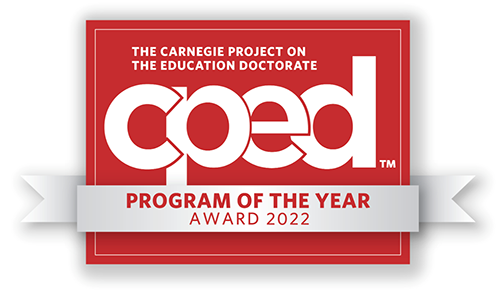
The Carnegie Project on the Education Doctorate, the national organization devoted to studying and strengthening the doctorate in Education (EdD), has selected Northeastern’s Doctor of Education degree as its “program of the year” for 2022-2023. The Graduate School of Education faculty, led by Assistant Dean Dr. Sara Ewell, innovatively redesigned the EdD using experiential learning to drive equity focused change work.
In naming the Northeastern EdD, the Carnegie Project on the Education Doctorate said: “The EdD in the Graduate School of Education at Northeastern University is driven by its mission to cultivate scholar-practitioners through lifelong experiential learning, contributing to the transformation of communities toward just and equitable societies. Following a year-long collaborative redesign process, in 2018 Northeastern welcomed its first group of students into the redesigned Dissertation in Practice Curriculum. Action Research was adopted as the sole methodology for the Dissertation in Practice for the program to integrate experiential learning – its signature pedagogy – more fully throughout the curriculum, engage scholar-practitioners in change leadership situated within their local contexts, and to emphasize social justice change work in ways that improve the human condition. Students in the Northeastern EdD are part of a large-scale networked community to create change across the globe.”
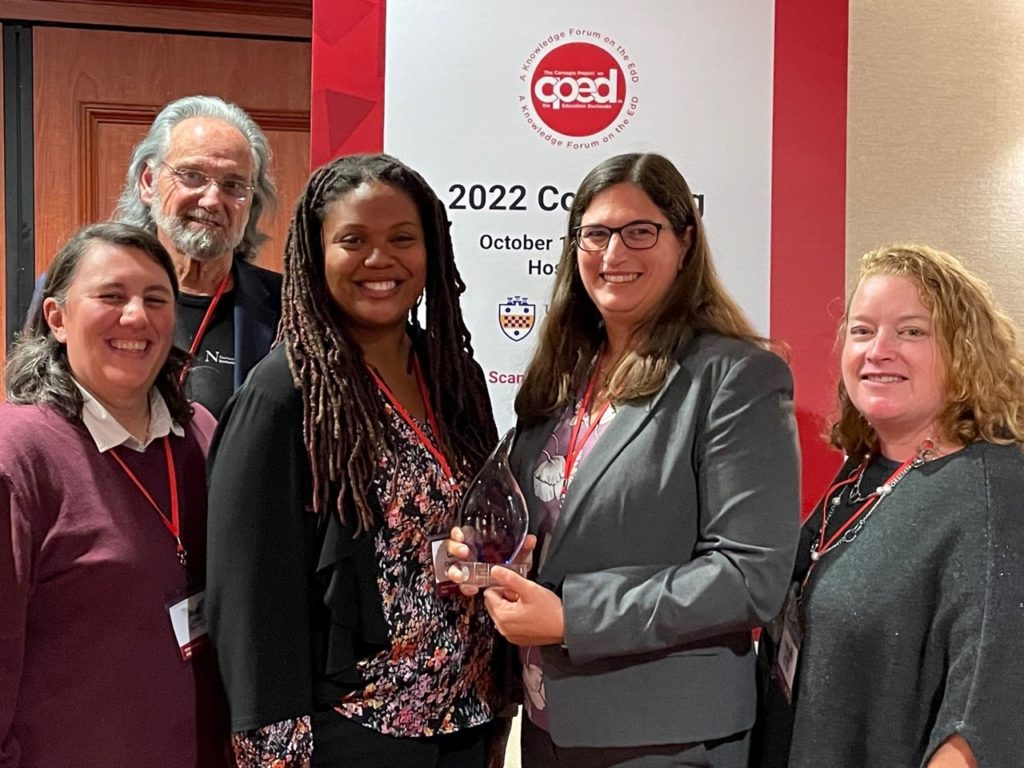
This year, the Carnegie Project selected two programs of the year, also recognizing Baylor University.
The Carnegie Project on the Education Doctorate includes over 100 colleges and schools of education, which have committed resources to work together to undertake a critical examination of the doctorate in education (EdD) through dialog, experimentation, critical feedback and evaluation.
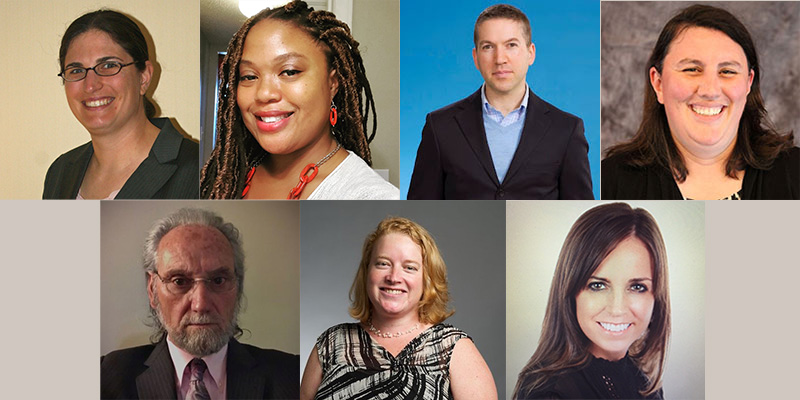
What Freedom of Religion Should Look Like in Public Schools After a Recent Supreme Court Decision?
As students are set to return to classrooms for a new school year, the Supreme Court’s recent 6-3 decision in Kennedy v. Bremerton School District is raising fears that the ruling undermines the traditional separation of church and state in public education.
Karen Reiss-Medwed and Noor Ali, professors in the Graduate School of Education at CPS, argue that K-12 schools need to do better in recognizing and honoring the identities of students who belong to religious minorities.
Instilling a Passion for Data Analytics in Boston High School Students
In June 2021, Alice Mello, Ph.D., was granted an award to develop and run a novel program, ‘Data Analytics Workshop: Empowering Minority High School Students with In-Demand Career Skills’ – from the Northeastern Office of Diversity, Equity and Inclusion. She also has leveraged support from the College of Professional Studies to support this high-impact initiative.
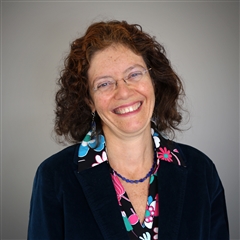
Mello’s interest was to ignite a passion for data analytics among the participating students through this preparatory course led by four graduate student mentors selected from the Master of Professional Studies in Analytics program, where Mello serves as an assistant teaching professor.
Called “Storytelling with Data,” the program was launched in three local schools: Edward M Kennedy Academy for Health Careers, where an in-person calculus class of 12 students studied data sets on Boston hospitals and COVID; Madison Park Technical Vocational High School, where two computer science classes attended virtual classes to study data sets on the chosen topics of games, movies, and Halloween; and Boston Day and Evening Academy, an alternative school for high school students, which attracted 13 math students for in-person learning. Students at the Academy first asked to study the war in Ukraine, but since data sets for this were hard to come by, they opted for public transportation instead.
Mentors began classes by explaining how data can be used to tell stories, by providing the context for any number of situations to show what is happening behind the scenes – and then how facts can create a visualization of patterns using the data visualization tool, Tableau. The climax of the story comes when the data reveals conflicts – which the data can also help resolve, using dashboards within Tableau.
The main goal of the program is to empower students to enter the field of data analytics, with a view to addressing the lack of diversity in the analytics field by inspiring students to continue their education at Bunker Hill Community College, the largest and most diverse community college in Massachusetts. This past year, CPS formed an agreement with BHCC that allows an easy transfer pathway for interested students, while offering Lowell Institute School scholarship support, depending on their financial needs.
“I am delighted at the success of this experience so far, both for the high school students and our MPSA graduate students (Teach to Learn and Learn to Teach!),” says Mello. “I’m committed to finding grant opportunities to offer this program on a yearly basis and I’m hopeful that we’ll see some of these students in our Bachelor of Science in Analytics or Bachelor of Science in Information Technology programs in a few years’ time!”
Northeastern’s Center for the Study of Sport in Society Teams Up with AG and School Leaders to Address Hate and Bias in School Athletics
In response to the recent rise in hate-based incidents in Massachusetts, Attorney General Maura Healey announced a new partnership with state and school leaders that aims to create positive change and a safe and healthy environment for young people in school sports throughout the Commonwealth.
The collaborative initiative, whose members first convened in April 2022, will expand programming and provide additional resources for school and athletic leaders at an in-person conference in late August / early September 2022 to help prevent hate and bias on the field and in locker rooms. During Fall 2022, Northeastern’s Center for the Study of Sport in Society will deliver 12 regional trainings across Massachusetts as part of the project. The interactive two-day sessions, with at least one held in each of the nine sports districts organized by the Massachusetts Interscholastic Athletic Association, will aim to empower attendees to bring what they learnt back to their schools and communities and train others.
“Sport is an impact engine of inclusion. It has the power to elevate conversation, inspire individual and collective change agency, and create true, sustainable change. AG Healey, her office, and all the committed stakeholders in this initiative, see and embrace sport as a pathway to positive youth engagement, social-emotional development, and the collective community inherent in teamwork. Hate and hurt have no place in sport, and we remain grateful to AG Healey for her responsive proactivity in creating such an intentional program of hope and healing. We are honored to contribute and be part of the team,” said Dan Lebowitz, Executive Director of The Center for the Study of Sport in Society.
Founded in 1984, and based at the College of Professional Studies, The Center for the Study of Sport in Society specializes in non-degree education and training that “connects the world of sport with social-justice-driven research, education, and advocacy through programming and global community engagement”. The Center developed curriculum and delivered training to hundreds of high schools, police departments, Major League Baseball, the NFL, and at the South African World Cup, among many others.
CPS Students Win University Awards with Record Seven Named to Northeastern’s Huntington 100
College of Professional Studies students at every academic degree level – bachelor’s, master’s, and doctoral – were recognized this year with prestigious university awards for their extraordinary achievements and commitment to the values of Northeastern University.
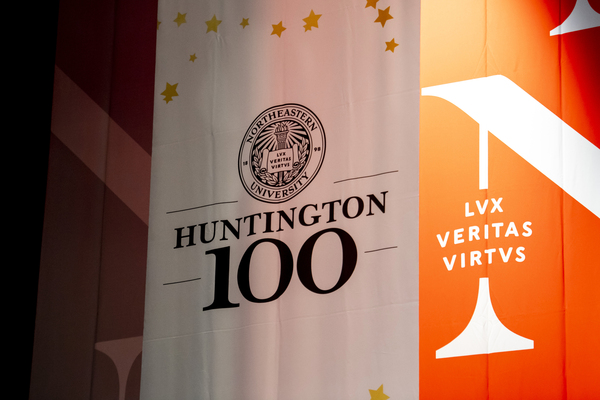
A record seven CPS students were named to the Huntington 100 this year, a group of students recognized for their service, leadership, innovation and entrepreneurship, global engagement, and impact on the campus community. These students are:
- Richa Dhungana, BS Finance and Accounting Management
- Lauren Herfindahl, BS Liberal Studies
- Brenda Hillman, Doctor of Education
- Laura Kozuszek, MS Global Studies and International Relations
- Mohammed (Mo) Moro, MS Global Studies and International Relations
- L’Bertrice Solomon, Doctor of Law and Policy
- Elif Yetistiren, BS Finance and Accounting Management
Distinguished juniors and seniors are selected by nomination into the Huntington 100 from all Northeastern campuses for achievements that embody “the university’s mission, ideals, and values”.
Lauren Herfindahl, CPS’22 was also the recipient of a Compass Award from Northeastern University Alumni Association. The award recognizes students from the senior class for “true dedication to a core set of values: leadership, volunteerism, academic integrity, and commitment to Northeastern.” Lauren, who’s looking to transition to the healthcare field, achieved academic success while working full-time as a professional dancer with the Boston Ballet and volunteering to mentor younger dancers. Each year, only nine awards are presented. David Fields, Interim Dean at the College of Professional Studies, described Lauren as “a disciplined, dedicated worker inside and outside of the classroom…precisely what it means to be a Northeastern University Husky.”
Out of more than 100 nominations received across award categories and Northeastern’s academic colleges, Digital Media student Raissa Talehata was honored with an Outstanding Graduate Student Award in Experiential Learning. This award is presented to graduate students “who have shown an extraordinary capacity to integrate academics and professional work and establish themselves as emerging leaders in their field.” As stated by her recommender, Raissa has “taken advantage of every opportunity for experiential learning, both curricular and co-curricular, during [her] course of study.”
Congratulations to all our awardees on their accomplishments!
From Kabul to Campus: Afghan Students Retrace Their Harrowing Journey to America
Lala Osmani, Mashal Aziz, Khadija Arian, and Sara Sherindil are newly arrived Afghan refugees to Northeastern’s Boston campus. They first met as finance and accounting majors at the American University in Afghanistan, the country’s first private university.
Through tears and laughter, they describe the pain of leaving family behind coupled with the joy of continuing their education at Northeastern’s College of Professional Studies.
Meet Our New and Promoted Faculty
This year, the College of Professional Studies welcomed eight new faculty colleagues and celebrated five faculty colleagues who earned a promotion, whose accomplishments are listed below.
The faculty of the College of Professional Studies create exceptional learning experiences that are essential to our students’ success. Along with that demonstrated excellence, the faculty also share a commitment to exploring new ways of responding to the changing needs of our students. Our faculty members’ ingenuity, expertise, and creativity in program and curriculum development prove that education can persist and even flourish during difficult times.
New Faculty
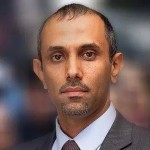
Dr. Ammar Aamer
Ammar Aamer, PhD, is an associate teaching professor in the Project Management program.
Dr. Aamer has more than 22 years of industry experience in project management, operations management, supply chain management and strategic business. He has served as a consultant on systems and processes including lean manufacturing, warehousing, six sigma, process and quality improvement and simulation modeling for numerous companies including Volvo, TRW Automotive, and Gap Inc. This included organizing and managing executive management training, developing capacity and asset-utilization models, and managing several continuous improvement projects.
Dr. Aamer has also served in various roles in education, including as assistant professor, associate professor, professor, and dean of the faculty of engineering and technology at Sana’a and Sampoerna Universities in Yemen and Indonesia. His publications include recent articles in the International Journal of Production Research, International Journal of Productivity and Performance Management, and Benchmarking: An International Journal. His research is currently focused on the areas of data analytics and supply chain management, artificial intelligence and project management, lean six sigma, change management, and the Internet of Things (IoT). Prior to his academic and business management roles, Dr. Aamer worked as a senior industrial engineer at Gap Inc.
Dr. Aamer earned his PhD in Industrial Engineering from the University of Tennessee in 2005. He has also achieved the Project Management Professional designation from the Project Management Institute. He lives in the greater Toronto area and teaches at Northeastern’s Toronto campus and online.
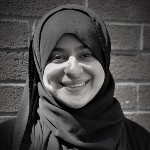
Dr. Noor Ali
Noor Ali, EdD, is an assistant teaching professor in the Graduate School of Education.
Dr. Ali has been a K-12 teacher for 15 years. She is the principal of Al-Hamra Academy, where her work has included mentoring faculty and students in bringing STEAM (science, technology, engineering, art and mathematics) -based experiential learning to the school. In this role she has also led initiatives focused on civic engagement among marginalized populations focused on social justice.
Dr. Ali’s writing on social justice, marginalization, leadership and curriculum has been published in academic journals including Follow The Leader and popular media outlets such as the Teach Better blog. Her book, Critical Storytelling: Narratives of Muslim American Youth, is forthcoming this fall from Brill/Sense. Her research interests include Critical Race Theory (CRT), and she has coined a CRT subset, MusCrit. She has extensive experience with citizen science, youth civic engagement, social justice and equity and interfaith initiatives.
Dr. Ali is a member of the Diversity, Equity, and Inclusion Taskforce for the Town of Shrewsbury, Massachusetts, and has served as a board member on the Shrewsbury Youth and Family Services, an organization that supports mental health. She has also worked extensively with the New England Association of Schools and Colleges (NEASC) and serves on the Accreditation Commission of Independent Schools.
Dr. Ali earned her EdD from Northeastern in 2018. She lives in the greater Boston area and teaches at Northeastern’s Boston campus and online.
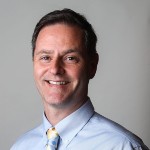
Jim Giumarra
Jim Giumarra is an associate academic specialist and faculty lead for the Mechatronics Engineering program.
Professor Giumarra previously served as department chair for electronics engineering technology and chair of the mathematics and physics department at Benjamin Franklin Institute of Technology, where he led the continuous improvement plan to ensure the relevance, sustainability and growth of the programs in the electronics department, developed a hybrid automation/robotics course curriculum fusing online instruction and an in-person lab model, and served as the sole faculty member on the school’s President’s Advisory Council. In addition, he was selected for the National Science Foundation (NSF) Research Experience for Teachers program to learn about Robotics and Controls at Texas A&M University and for the NSF-sponsored 20-hour “Revamping Robotics Education” workshop at Michigan Technological University, where he earned a certification as an instructor on the Fanuc industrial robot.
Prior to entering the education field, Professor Giumarra spent almost a decade in science research and engineering, most recently at Janis Research Company, where he designed custom cryogenic vacuum systems based on experimental requirements; expanded system design to include options for automation, vibration isolation, optical testing, in-situ magnetic field testing, and an in-situ device-feature measurement system; and developed and constructed control circuits for low-temperature test systems.
Professor Giumarra earned his master of science in electrical engineering and computer science from the University of Illinois in 2000. He lives in the greater Boston area and teaches in Boston and online.
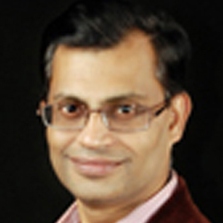
Dr. Umesh R. Hodeghatta
Umesh R. Hodeghatta, PhD, is an assistant teaching professor in the Analytics program.
An engineer, a scientist and an educator, Dr. Hodeghatta specializes in analytics, machine learning, deep learning, natural language processing, and cyber security. Dr. Hodeghatta has more than 25 years of experience in technical and senior management positions at AT&T Bell Laboratories, Cisco Systems, McAfee, and Wipro. As a data scientist, he helps business leaders arrive at data-driven decisions linked to their organizations’ strategies and financial goals. He has served in numerous professional organizations and regulatory bodies—including as senior technical advisor to the Government of India.
Dr. Hodeghatta previously served on the faculty of Kent State University in Ohio and the Xavier Institute of Management in Bhubaneswar, India, where he designed and taught courses. He was instrumental in setting up a high-speed optical network and data center with the integration of telephony and data in XUB. He has published in international journals and conference proceedings on topics ranging from “How to Build Chat-Bots Using Machine Learning and NLP” to “Can AI and Privacy Co-Exist?” Also, he is the author of two books: Business Analytics Using R: A Practical Approach and The InfoSec Handbook: An Introduction to Information Security published by Springer Apress. He also is a senior member of the Institute of Electrical and Electronics Engineers (IEEE).
Dr. Hodeghatta earned his master’s degree in electrical and computer engineering from Oklahoma State University and his PhD from the Indian Institute of Technology Kharagpur in 2015. He lives in the greater Boston area and teaches in Portland and Boston and online.

Dr. Megan Kennedy
Megan Kennedy, PhD, JD, is an assistant teaching professor in the Doctor of Law and Policy Program.
Dr. Kennedy served for six years as assistant district attorney in Norfolk County, Massachusetts, working in both district and superior courts. As a criminal prosecutor, she focused primarily on cases of family violence and sexual assault, earning both the Spotlight Award and the District Court Prosecutor of the Year award.
Dr. Kennedy joined Northeastern in 2018 as a lecturer in the Doctor of Law and Policy program, teaching courses on law and legal reasoning, research methods, qualitative methods and law and policy concepts. Her research interests include courts and the decision-making of court actors; victims of crime; policy and legal reform; and research methods. She has published articles on the processing of court cases, the harsh sentencing of juveniles, and the dynamics of misdemeanor plea bargaining. In her current role, she is responsible for the research methods curriculum, student thesis advising, and teaching. Her prior teaching roles include positions at Southern New Hampshire University and the State University of New York at Albany (UAlbany).
Dr. Kennedy earned her law degree from Gonzaga University School of Law in 2002 and her PhD from the School of Criminal Justice of UAlbany in 2018. A member of the American Society of Criminology and the Law and Society Association, she is also licensed to practice law in Massachusetts. She lives in Seattle and teaches in Seattle and Boston and online.
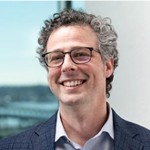
Dan Koloski
Dan Koloski is professor of the practice in the Analytics program and director of professional studies at the Roux Institute at Northeastern University in Portland, Maine.
Professor Koloski joined Northeastern after spending more than 20 years in the IT and software industry, working in both technical and business management roles in companies large and small. This included application development, product management and partnerships, and helping lead a spin-out and sale from a venture-backed company to Oracle. Most recently, Professor Koloski was vice president of product management and business development at Oracle, where he was responsible for worldwide direct and channel go-to-market activities, partner integrations, product management, marketing/branding and mergers and acquisitions for more than $2 billion in product and cloud-services business. Before Oracle, he was CTO and director of strategy of the web business unit at Empirix, a role that included product management, marketing, alliances, mergers and acquisitions and analyst relations. He also worked as a freelance consultant and Allaire-certified instructor, developing and deploying database-driven web applications.
Professor Koloski’s previous work experience focused on the application of advanced analytical techniques to software testing, IT operations and cyber security. His teaching is focused on building the next generation of data citizens across the technical and business spectrum through delivery of technical and experiential education courses to graduate students. Professor Koloski directs the professional programs faculty team at the Roux Institute and delivers a variety of lifelong learning experiences for Northeastern industry partners.
Professor Koloski holds a bachelor’s degree from Yale University and earned his MBA from Harvard Business School in 2002. He lives in the greater Portland, Maine, area and teaches at the Roux Institute Portland campus and online.
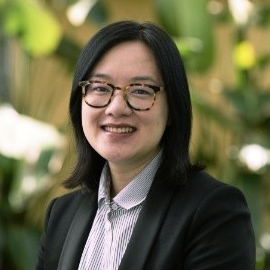
Dr. Yvonne Leung
Yvonne Leung, PhD, is an assistant teaching professor in the Analytics program.
Dr. Leung previously served as an assistant professor in the Department of Psychiatry at the University of Toronto. She is also a scientist at the University Health Network, the largest research institute in Canada, where she designs and evaluates artificial intelligence (AI)-based psychosocial and supportive care services for cancer patients to improve quality of life and access to care.
Dr. Leung has more than 15 years of experience in psychosocial and mental health research and has secured over C$880,000 in personal awards and research funding as a principal investigator and over half a million dollars as a co-investigator. She has published 39 peer-reviewed journal articles in psychosocial care and health services research.
Currently, Dr. Leung is leading two projects using machine learning-based natural language processing algorithms to assist online support group therapists in tracking real-time participant progress and to develop Chatbot solutions for automated self-care support tailored to patients with metastatic breast cancer. Her expertise encompasses administrative databases, patient-reported outcomes, psychometrics, advanced statistical techniques including machine learning, trajectory analysis, latent structure analysis, and cluster analysis. She is also knowledgeable in qualitative analytic methods such as grounded theory and thematic and content analysis, as well as in interpretive descriptive methods. Among the courses she has taught are “Introduction to Statistics,” “Research Methods,” “Survey Methods,” and “Exploratory and Confirmatory Factor Analysis” to both healthcare professionals and senior analysts.
Dr. Leung earned her PhD in kinesiology and health science from York University in Toronto in 2011. She lives in the greater Toronto area and teaches at the Toronto campus and online.
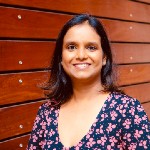
Dr. Shanu Sushmita
Shanu Sushmita, PhD, is an assistant professor in the Analytics program.
Shanu Sushmita, who specializes in machine learning, data mining, information retrieval and health analytics, has worked for more than a decade as a researcher and teacher of computer science at the undergraduate and graduate levels. Most recently, she was an affiliate assistant professor at the University of Washington, Tacoma, School of Engineering and Technology, concurrently holding a faculty position in the Master’s in Business Analytics program at Milgard Business School at UW, Tacoma.
Previously, Dr. Sushmita was head of data science at KenSci, a Seattle healthcare company that provides AI platform for digital health and healthcare solutions. Her role included strategic planning, designing a vision for data science and managing a team of data and research scientists to demonstrate how healthcare payers and providers could use data and analytics to improve and standardize clinical care, reduce costs, achieve population health goals and make better strategic decisions for their organizations.
Dr. Sushmita’s research interests include applications of machine learning, information retrieval and utilizing data to improve user experience. In the course of her doctoral studies at the University of Glasgow, she taught courses in data science, analytics and natural language processing, and she has published on topics in healthcare, social media, artificial intelligence (AI) and information retrieval.
Dr. Sushmita holds a B.E in Computer Science from North Maharashtra University and a Ph.D. from the University of Glasgow in Computer Science. She lives in the greater Seattle area and teaches in Seattle and online.
Promoted Faculty
Congratulations to five faculty members of the College of Professional Studies who have been promoted. The following faculty members have been recognized for their excellence in teaching and curriculum development. Promotion also recognizes their contributions to the college and university through their leadership, service, educational innovation, discovery and professional engagement in their fields.
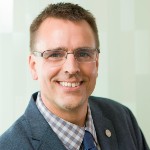
Dr. Christopher Bolick
Christopher Bolick, EdD, has been promoted to associate teaching professor in the project management program.
Dr. Bolick, who has served at Northeastern since 2013 as a part-time faculty member, as a full-time faculty member and currently as faculty leader, brings extensive experience with a Fortune 40 company in project management and business process improvement.
In his role as lead faculty for the project management programs, Dr. Bolick has worked to establish faculty onboarding as well as faculty mentoring and support, as the program has grown in size and quality across six regional campuses. He was one of the first faculty members to pilot livecast teaching from the Charlotte campus to Boston, and Project Management under his leadership was the first program to be fully mapped as competency-based, allowing further development at the modular level and opening the door to badging and stackability for students through prior learning assessments. He has also served as chair of the CPS Academic Programs Committee, which oversees and shepherds all new program and program changes across all academic areas in CPS.
Dr. Bolick has taught graduate courses including “Project Foundations,” “Project Cost & Scheduling,” “Project Evaluation,” “Special Topics,” and “Project Capstone” in addition to partnering with organizations in the nuclear, pharma and municipalities fields to assess workforce needs and deliver certificates, multi-day workshops and credit-bearing courses. He presented at the Project Management Institute’s 2018 Technology and Talent Symposium and has co-authored a chapter in the areas of artificial intelligence, data analytics, and digital transformation as related to project management practices.
Dr. Bolick earned his EdD from Northeastern University in 2020.
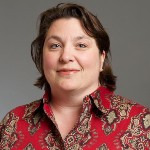
Dr. Kelly J. Conn
Kelly J. Conn, PhD, has been promoted to teaching professor in the Graduate School of Education.
Dr. Conn has been a full-time faculty member since 2012. Informed by her previous career in laboratory science, she has developed and taught courses on science, technology, engineering and math (STEM) education including “Current and Emerging Practices in STEM Education” and “National and International Benchmarks in STEM Education.”
Dr. Conn is currently collaborating on a project to develop and expand experiential learning in elementary and secondary school classrooms by creating curriculum for the Network for Experiential Teaching and Learning (NExT). In this role, Dr. Conn has developed and taught courses for the Graduate Certificate in Experiential Teaching and Learning and serves as faculty lead for the Master’s of Education program in Learning and Instruction. She also teaches in the Doctor of Education program and serves as dissertation chair to several students.
Dr. Conn coauthored a book commissioned by the College of Professional Studies, The Lowell Institute School at Northeastern University (2015), and was lead science consultant to the Abakhokeli Project, a joint science-teacher-training effort of Northeastern and South Africa’s Western Cape Education Department. She has also served as the regional lead faculty member for the EdD program in Hong Kong.
Dr. Conn currently serves as co-investigator of a multi-year National Science Foundation grant that explores experiential, industry-connected learning experiences for high school students to foster interest and preparation for STEM careers.
She earned her PhD in biochemistry from Boston University in 1999 and has done postdoctoral work in neuroscience.
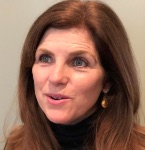
Dr. Shaunna Harrington
Shaunna Harrington, PhD, has been promoted to teaching professor in the Graduate School of Education.
Dr. Harrington teaches in the master’s programs in the Graduate School of Education, and also teaches and advises undergraduates in the PlusOne program, which allows students to begin working toward their Master of Arts in Teaching degree while completing their bachelor’s degree. She has taught courses on curriculum, instruction, and assessment, and on the history of K12 and higher education, and was the long-time faculty lead for the master’s programs foundation course, “Culture, Equity, Power and Influence.” Dr. Harrington has served on a variety of internal committees including the College of Professional Studies Joint Task Force on Faculty Workload and the Faculty Performance Review and Merit Pay Task Force. She currently serves as the board president for the Massachusetts affiliate of the Association for Supervision and Curriculum Development.
Dr. Harrington began her career as a middle school social studies teacher in the Boston Public Schools and has continued to focus her teaching and activism on equity and justice education. She has been engaged in action research focused on teaching social justice in online settings and on deepening equity practices in teacher education. She also researches the history of education and has presented on a variety of topics from community schools created by Black parents and activists in Boston in the 1960s to American colonial education in the Philippines in the early 20th century. She served as a Humanities Scholar on the public history project, The Long Road to Justice, which documents how African Americans have sought racial justice in the Massachusetts courts.
Dr. Harrington earned her PhD in history at Northeastern in 2019.
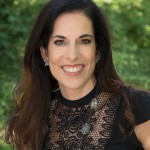
Dr. Kristen Lee
Kristen Lee, EdD, has been promoted to teaching professor in the behavioral science programs.
Since her full-time appointment in 2013, Dr. Lee has taught courses including “Engaging Diversity and Difference,” “Stress and Its Management,” “Assessing your Leadership Capability,” “Group Dynamics and Interpersonal Conflict,” and has advanced Northeastern’s mission in a wide variety of ways. A pioneer in developing the college’s Experiential Network (XN) model and an innovator with the PlusOne stackable credential model, she is lead faculty member in behavioral science within the college’s Healthcare and Biotech domain, serves as faculty-in-residence in International Village, and earned the 2012 Excellence in Teaching Award. Her leadership on mental health and resilience has significantly shaped the university’s approaches to supporting students.
Dr. Lee also serves as a Global Resilience Institute Faculty Affiliate. Active on campus and in the media as an advocate for global mental health, Dr. Lee is a frequent conference presenter and author. Her 2014 book, Reset: Make the Most of Your Stress: Your 24-7 Guide for Well-Being, won Motivational Book of the Year in the Next Generation Indie Book Awards. She is also the author of Mentalligence: A New Psychology of Thinking: Learn What it Takes to Be More Agile, Mindful and Connected in Today’s World, and the upcoming Worth the Risk: How to Microdose Bravery to Grow Resilience, Connect More, and Offer Yourself to the World, and the Rethink Your Way to the Good Life column for Psychology Today. Her TEDx talk, “The Risk You Must Take” has been viewed more than 311,000 times.
A Licensed Independent Clinical Social Worker, Dr. Lee speaks and consults globally on resilience, has shared her expertise as a grant reviewer for U.S. federal agencies for more than two decades, and has spoken at more than 40 events across the university.
Dr. Lee earned her EdD in Organizational Leadership Studies at Northeastern in 2011.
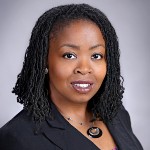
Dr. Corliss Thompson
Corliss Thompson, PhD, has been promoted to teaching professor in the Graduate School of Education.
Since her full-time appointment in 2013, Dr. Thompson has taught research methods, research design, and social justice courses, including “Culture, Equity, Power, and Influence,” “Research Design,” and “Qualitative Research Methods.” Her work centers on her commitment to diversity, equity, and inclusion, and she has contributed significantly to the development of NExT, the Network for Experiential Teaching and Learning, serving as a panelist and creating materials and workshops.
Dr. Thompson is passionate about using culturally relevant and experiential approaches in her teaching and mentoring. She uses research methodology and program evaluation approaches for deeper understanding and improvement of teaching and learning and helps colleagues and students employ the same approach. Dr. Thompson is currently principal investigator on a 2019 National Science Foundation grant focused on experiential learning in science, technology, engineering and mathematics (STEM) for high school students. She has also served on a number of committees in the College of Professional Studies and the university, such as the Provost Search Committee, and she presents on topics of diversity, equity and inclusion across the university and beyond.
Before becoming a faculty member, Dr. Thompson worked in a research and evaluation office in a school district in North Carolina and at the University of North Carolina, where she earned her doctoral degree. She also was an elementary school teacher in Charlotte and Chapel Hill, NC.
Dr. Thompson earned her PhD in Educational Research from the University of North Carolina at Chapel Hill in 2013.
Graduation 2021
College honors master’s and doctoral graduates, citing ‘ingenuity and resilience’, with ceremonies that emphasize service, perseverance and experiential learning.
Doctoral Hooding
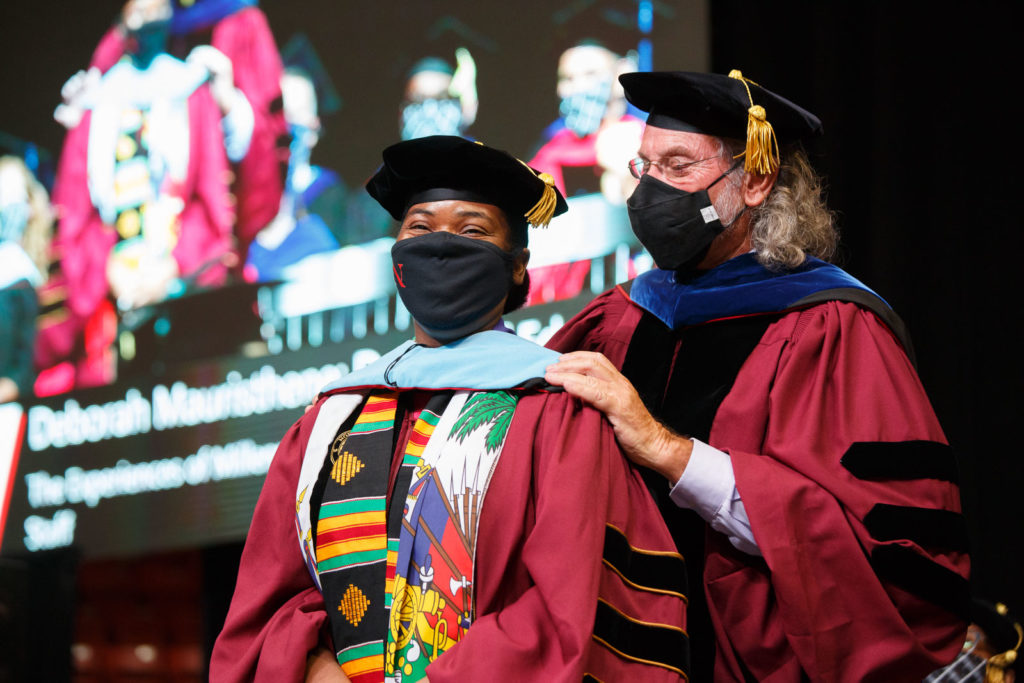
The words of Brent Musson, (Doctor of Law and Policy ’20), captured the mood at the Doctoral Hooding and Graduation Ceremony of the College of Professional Studies in Matthews Arena Sept. 9—and at the Master’s Graduation Ceremony in the same location the following day: “Humanity at its best,” the 2020 Dean’s Medal recipient said in his remarks to the successful doctoral candidates, “is humanity in gratitude.”
Gratitude was in abundance both days as faculty, administrators, students and their families—as well as friends of the College worldwide via livestream—celebrated the graduates’ achievements in the face of extraordinary challenges. Speakers at the ceremonies praised the degree recipients for their perseverance in scholarship despite a global pandemic, their passionate commitment to learning and their determination to address real-world problems in their project-based learning and research.
‘Both humility and pride’
In his opening remarks on Sept. 9, Provost and Senior Vice President for Academic Affairs David Madigan, Ph.D., welcomed the College of Professional Studies (CPS) community, expressed his faith in the graduates’ future success and his pride in their accomplishments and celebrated their membership in Northeastern’s “powerful knowledge network” dedicated to the dream of a more just and equitable society. He was followed at the podium by Interim Dean of CPS Dr. David Fields, who noted the unusual degree to which CPS students break down the barriers between work and learning.
“Our doctoral students are already fulltime professionals and leaders in their fields,” Dr. Fields observed. “In true Northeastern fashion, they are researching what they live, and living what they research, every day.”
Dr. Fields went on to explain the significance of the hooding ceremony—so-called because doctoral students traditionally have the hoods of their academic regalia lifted over their heads by faculty.
“The symbolism of the hooding ceremony at our doctoral commencement honors both the doctoral candidate’s work and the network of relationships that make that work possible,” Fields said. “[It] embodies both humility and pride, on both sides of the relationship, as faculty members welcome a new peer into their community.”
Faculty speaker Dr. Mounira Morris (B.S. ’91, M.S. ’95), assistant teaching professor and the co-lead for the Master of Education in Higher Education Administration program, offered her congratulations to the graduates and acknowledged the special challenges that had arisen during their studies, including the pandemic and the persistence of racial injustice. She quoted James Baldwin, noting his achievements as a playwright, novelist and civil rights activist: “Not everything that is faced can be changed, but nothing can be changed until it is faced.”
“To me,” Dr. Morris said, “this means that at times we will collectively endure hardship; however, we can use these experiences, especially as doctors, to offer wisdom, hope, and a better path forward.”
A longtime leader in diversity, equity and inclusion (DEI)—and currently working with colleagues at Northeastern to develop a new academic credential in DEI—Dr. Morris emphasized the power for good inherent in the attainment of an advanced degree, encouraging the graduates to find creative solutions to the challenges in their professions, communities and personal lives.
“We, as faculty,” she said, “ask that you take your research, and go out and change your world, your profession, your workplace and make it just a little bit better than before. We, as faculty, believe you can persevere and persist. We know you can.”
Intellectual explorers
Dr. Musson, whose acceptance of the 2020 Dean’s Medal had been previously postponed due to Covid-19 precautions, suggested in his remarks that the attitude of an academic researcher is “not that of an author or maker, but rather that of an explorer.” He praised the selflessness and commitment of his peers and made a critical distinction between an undergraduate education—which, he said, “teaches a student how to learn”—and a graduate education, in which students learn “to use tools … to solve other people’s problems” and to create value, going “from inward-facing to outward-facing.”
He noted that, soon after a doctoral candidate’s academic journey begins, “we become acutely aware of what we’re signing up for; to spend the next few years engaged in the most rigorous intellectual exercise of our lives, to extract a single, pure, tiny drop of insight to ever-so-slightly raise the sea level of the ocean of human knowledge.”
And he described a moment of inspiration in what he termed a spiritual awakening: a street soccer game he had observed in West Africa more than a decade earlier, where, when a beautiful goal was scored, both teams celebrated. Drawing a parallel between the players’ selfless joy and the academic community he had found at Northeastern, Dr. Musson said, “These happy boys had purpose; and that purpose made them work together, against all odds to orchestrate a moment of greatness—a moment of pure, unselfish greatness.
“I’ve never circled a soccer field making wings with my arms,” he continued, “but research has made me part of our team, and this humbling honor is our winning goal.”
As Dr. Musson finished his speech, the audience rose to deliver a sustained standing ovation.
At the conclusion of the ceremony, Dr. Madigan returned to the stage to offer closing remarks, praising the successful doctoral candidates for their “drive, dedication and sense of purpose.”
“The world is ever changing,” he said, “but you are prepared to meet—and conquer—its challenges.”
Master’s Ceremony
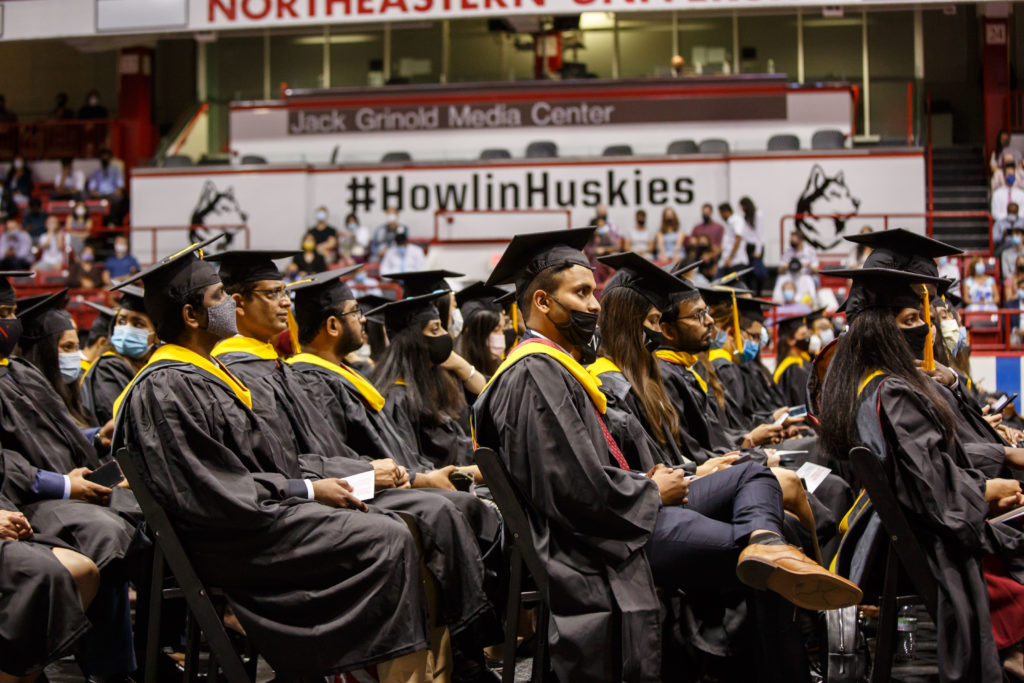
‘A day full of promise’
The following afternoon, Dr. Madigan returned to welcome master’s graduates to the arena on “a day full of promise.” He praised their “clear-eyed determination, discipline and hard work,” and offered special recognition to the faculty who, he said, by guiding the graduates to success, “have strengthened a legacy of knowledge and helped shape the future in scores of fields of professional endeavor.”
Following Dr. Madigan’s remarks, Dr. Fields spoke, celebrating the graduates’ global engagement and their cultivation of “the cultural competencies needed for a lifetime of contribution in a fast-paced, diverse, global society.” He went on to emphasize the benefits of their embrace of experiential learning, noting that in so doing, they had “addressed pressing, real-world problems” and become “well-prepared to lead from experience in the workplace.”
Dr. Fiona Creed, associate teaching professor and faculty director of the Global Studies and International Relations program, next introduced student speaker Ebony Small, ’21.
Reflecting on a year of adversity, Small observed “the pandemic itself could neither make nor break us” and asked graduates to consider the ways in which the challenges of the past 18 months had taught them to know their own courage, ambition, and steadfastness.
“We did not make it to this moment merely because we just-so-happened to survive a global pandemic,” Small said. “No, we made it here because we made the choice to value education and then fiercely pursued it. My dear friends and colleagues, despite the unexpected challenges of this year, we thrived. We grew. We changed.”
“This,” she concluded, “is what it looks like to turn a choice into a change. This is what it looks like to champion growth. Congratulations.”
From humble roots to world-renowned
Following an introduction by Dr. Earlene Avalon, associate professor and lead faculty for Health Administration and Health Sciences, graduation speaker Carl H. Whittaker, a philanthropist whose life path has spanned business, engineering and music, addressed the community.
A director of the Herb and Maxine Jacobs Foundation—which supports the College’s “A2M” or “Associates to Masters” program, offering an accelerated pathway from a community college associate’s degree to a bachelor’s at the College of Professional Studies and a master’s degree in Biotechnology at Northeastern’s College of Science—Whittaker began by invoking Northeastern’s origins as a vocational school offering evening classes, run by the YMCA.
“We all know that Northeastern is now a world-renowned university, highly ranked in many fields,” Whittaker said. “But inside this world-class institution is still the legacy of that 1898 night school.”
Whittaker linked this history with Northeastern’s emphasis on internship experiences, co-ops, and other programs that connect students to “great employers and great jobs.” He applauded the graduates for their effort and creativity in juggling jobs, families, and studies, urged them to embrace the role of mentor for other aspiring scholars, and invited them to fight income inequality—as his foundation does in part by supporting scholarships at Northeastern.
“I am inviting each of you to join my fight against economic inequality by encouraging at least one or two others to join you in earning an advanced degree,” Whittaker said. “Just be ready when you see a family member or neighbor who would value your guidance. Your friendly support might be thing that leads someone to a more prosperous and fulfilling life.”
The Doctoral Hooding and Master’s Ceremony were livestreamed from Matthews Arena. Click the links below to view recordings of the ceremonies.
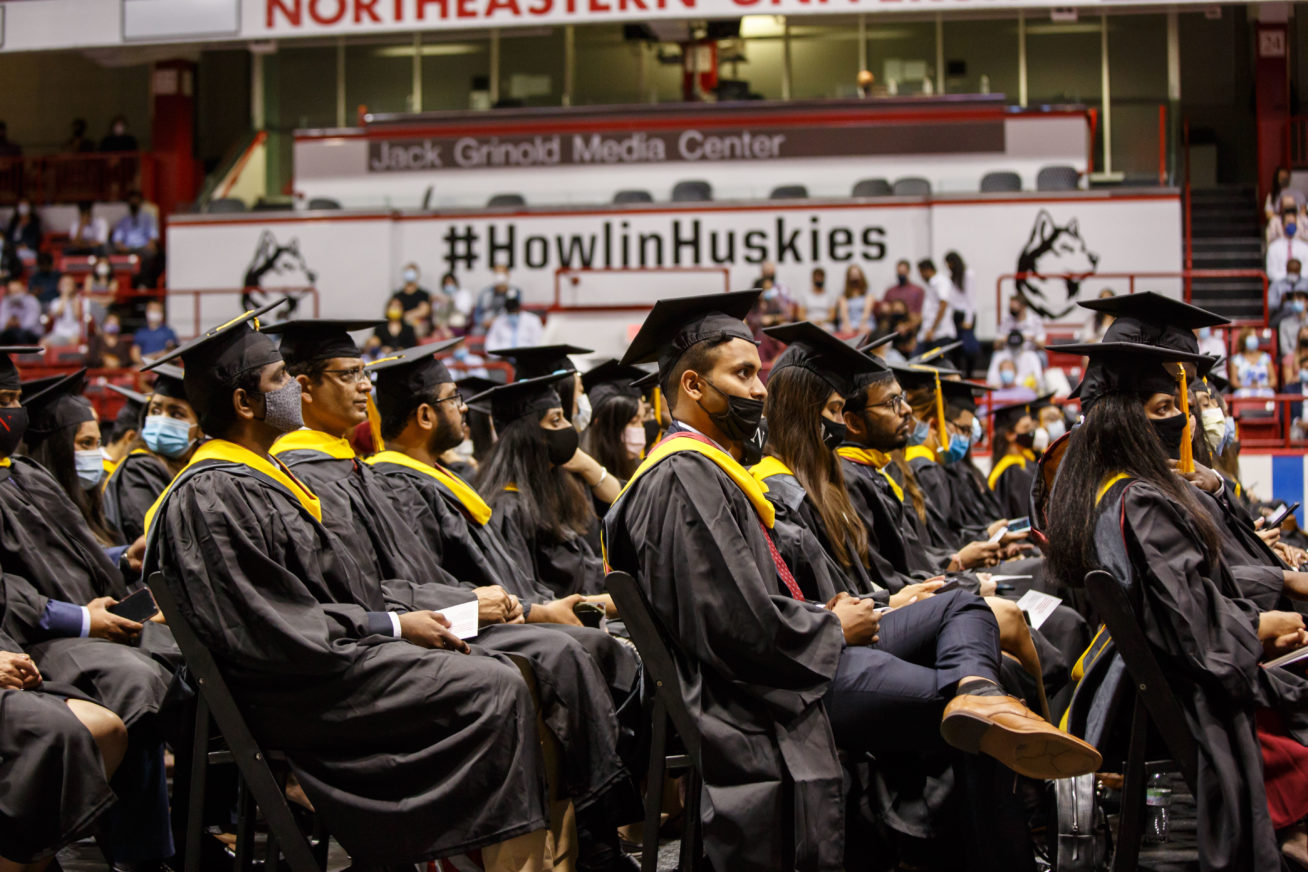
Watch the Ceremonies
The Doctoral Hooding and Master’s Ceremony were livestreamed from Matthews Arena. Click the links below to view the graduation pages and watch recordings of the ceremonies.
Learn more about our programs
The Pandemic Made the CPS Class of 2021 Double Down and Remain Focused
The pandemic was remembered at the College of Professional Studies’ master’s degree graduation ceremony on Friday as a unifying force that bred a kind of resilience and flexibility that allowed students to bend, but not break, under the pressure of a global health crisis.